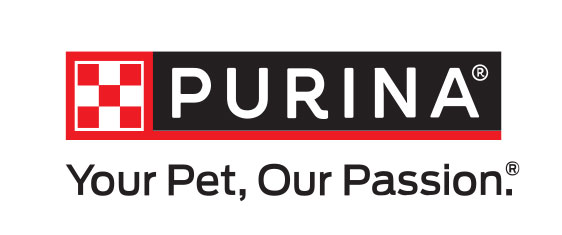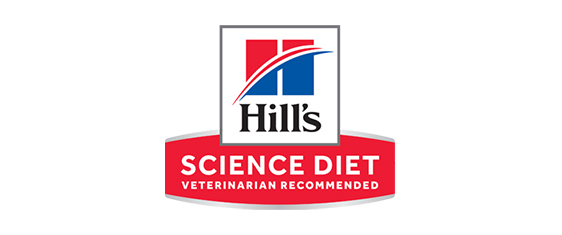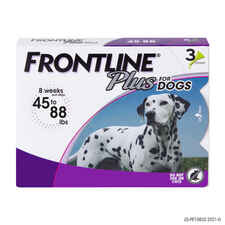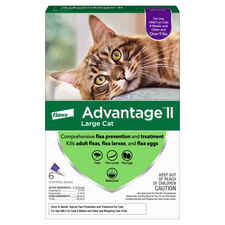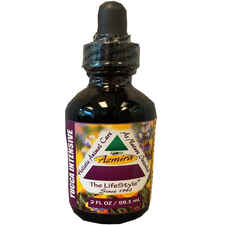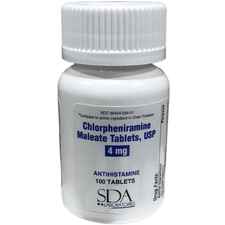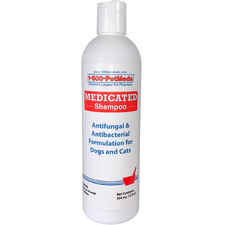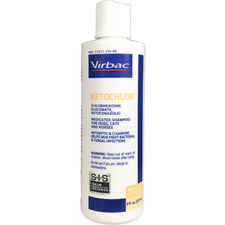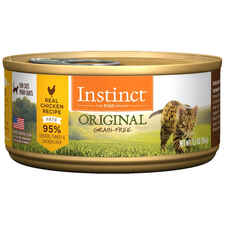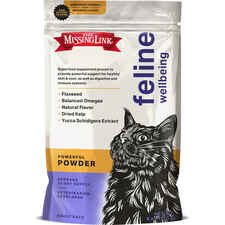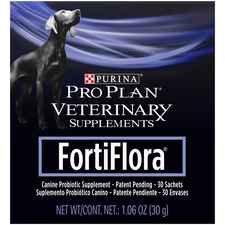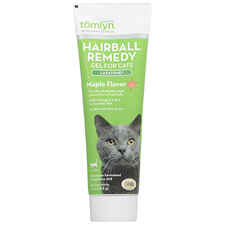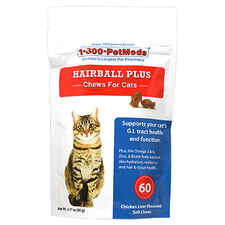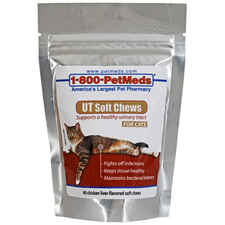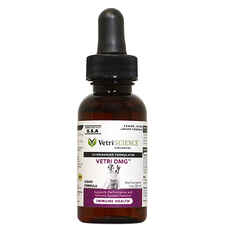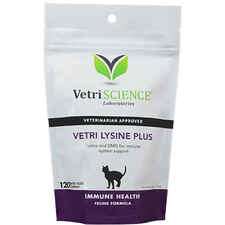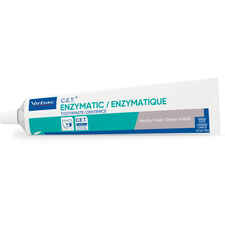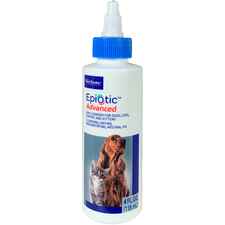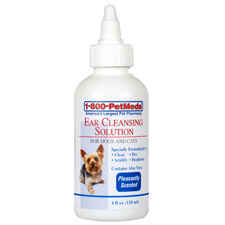Common Health Problems in Cats
Doctor of Veterinary Medicine

While efforts are made to answer all questions as quickly as possible, if an immediate answer is required or if your pet is in need of urgent or emergency care, contact your pet's veterinarian immediately.
Doctor of Veterinary Medicine

You will receive an answer from Dr. Lindsay and our vet/tech team as soon as possible, usually the same day.
All answers are provided for informational or educational purposes only, and are intended to be a supplement to, and not a substitute for, the expertise and professional judgment of your pet's veterinarian.
It may be necessary to consult your pet's veterinarian regarding the applicability of any opinions or recommendations with respect to your pet's symptoms or medical condition.
CloseDoctor of Veterinary Medicine

An error has occurred, please reload the page and try again.
CloseWhile efforts are made to answer all questions as quickly as possible, if an immediate answer is required or if your pet is in need of urgent or emergency care, contact your pet's veterinarian immediately.
There is no answer related to your question
Cats can suffer from a variety of health problems from digestive upset, urinary problems, skin disease, respiratory infections, ear infections, and dental and gum problems. Cats are known to mask illness and disease very well, and they don't often show any symptoms until they are very ill. If your pet has a change in energy level, appetite, behavior, or increase in discomfort, it is probably best to take your cat in for a full physical examination, and possible diagnostic workup.
If your pet is suffering from milder symptoms in some of these areas, there are many at home treatments that are available that can often alleviate symptoms in many of these conditions. See the list of common problems cats suffer from below and how you may be able to help your precious cat.
Tapeworms
Tapeworms are very common in cats, and usually come from ingesting fleas from a current or prior flea infestation. In some cases ingesting stools of other animals may also lead to a tapeworm infection. In heavy infestations, tapeworms may cause pets to be bloated, with occasional vomiting or diarrhea, as well as anal itching and irritation. Often feline guardians will find unsightly tapeworms crawling out of the anus or near the tail of their feline companions. Many times flat, rice like segments are found in the stool samples. Unhealthy tapeworms can be gotten rid of with over-the-counter HomeoPet Wrm Clear. It is effective and easy to give.
Other prescription products such as Drontal may also be used in some cases. It is important to treat tapeworms in cats because unfortunately the family, especially the children can become infected. Aggressive flea control with products such as Frontline Plus, Advantage II, or Revolution, which also prevents heartworm disease are also important, since fleas commonly carry tapeworms and are the source of many infestations.
Itching and hair loss
The number one cause of hair loss in cats is fleas. Just one flea bite can cause an allergic reaction, which leads to itching, over-grooming, and hair loss. Use Advantage II or Frontline Plus to prevent fleas before they become a problem. Oral Comfortis has been recently approved for flea control in cats, and has been very successful in treating and preventing flea infestations in dogs. The broad spectrum topical product called Revolution has also been a favorite prescription of many veterinarians. To quickly decrease inflammation and itching, Yucca Intensive can be used topically and orally. Antihistamines such as Chlorpheniramine at a dose of 2 mg twice daily often eases allergic reactions. Long term oral fatty acids added to the diet, including Missing Link for Cats which may also help many itchy pets when used long-term.
Raw spots and hot spots
Underlying inhalants/contact allergies, food allergies, and flea allergies may cause cats to develop secondary raw spots and hot spots. These type of allergies often lead to secondary yeast or bacterial infections. Parasites including mange mites and ringworm may also cause raw spots and hot spots to develop. In any pet with chronic raw or hot spots, a full veterinary evaluation for underlying causes is recommended so that the best course of treatment can be instituted.
Both Malapet and Ketochlor shampoos can help eliminate bacteria, ringworm and yeast that thrive in raw, open skin infections. Animax, and Dermalone are also helpful to ease localized inflamed areas of the skin. Bactoderm is an excellent topical product, particularly for cats with localized skin acne or other infections, and Yucca Intensive is an excellent natural product that can be used both topically and orally. HomeoPet Hot Spots may relieve hot spots that are red, oozing, or dry and flaky. This all-organic product supports healing where hair loss occurs from chewing and licking the hot spot area.
Excessive shedding
Excessive shedding can be unhealthy, cause pain and discomfort, and lead to skin problems. Excessive shedding can be due to poor diet or dietary allergies, as well as internal metabolic illness and disease. Any pet who chronically sheds should receive a full medical exam and evaluation. Hairball control from reduced shedding helps prevent unwanted digestive upsets. Excellent natural diets including Nature's Variety Cat Food and Halo often help eliminate excessive shedding in some cats. Fatty acid supplements including Missing Link for Cats and Be Well for Cats are also wonderful products for enhancing coat quality and reducing shedding.
Diarrhea
Diarrhea distresses the family and the cat. There can be many causes of diarrhea in cats including parasites, viral infections, dietary/food allergies, metabolic illnesses of the liver, intestinal tract, pancreas, or thyroid. FortiFlora helps promote intestinal balance and can help cats with diarrhea. Feeding broth or bland turkey or lamb baby food for a day can also help a cat's digestive tract recover from mild or acute diarrhea. Petdophilus is another favorite probiotic that is safe to use both short and long term. NatureVet Digestive Enzymes with Prebiotics & Probiotics is an excellent source of digestive enzymes that can help with digestion and lessen diarrhea. Adding Vetasyl to meals can help as a source of soluble fiber, as well as help regulate bowel movements.If diarrhea persists or is bloody, a full veterinary exam and evaluation for some of the above underlying diseases is recommended.
First Aid
Cats are naturally very clean, but be ready to help them when they have a wound. Use a wound cleanser to help clean wounds and help relieve pain associated with bacterial infections.
Vomiting
Vomiting can have many causes in cats from ingested foreign bodies, excessive hair, viruses, parasites, food allergy to metabolic illness. Laxatone and Petromalt , and Hairball Plus are excellent over the counter remedies for hairballs. Pepcid AC at a dose of 2.5 to 5 mg once to twice daily may also help ease an acute upset stomach. If vomiting persists or worsens, a full veterinary exam is recommended.
Urinary infections
Cats may suffer from inflammation of the bladder that may lead to increased urgency, bloody urination, as well as inappropriate urination. This syndrome is known as feline urologic syndrome. In some cases injectable antibiotics are needed such as Convenia, while in other cases nutritional supplements including UT Soft Chews and NaturVet Cranberry Relief may be helpful. If a cat is straining and not urinating, an emergency veterinary evaluation is recommended to make sure urinary tract obstruction is not present.
Respiratory infections
The most common infection among cats is an upper respiratory virus infection. Boost your cat's overall health to make him or her less prone to infection with wonderful immune boosters such as Vetri-DMG. Vetri-Lysine Plus Soft Chews contains an amino acid that can help lessen the severity of many upper respiratory viral infection that may cause sneezing, nasal discharge and difficulty breathing.
Dental and gum problems
Dental disease is very common in adult and senior cats and may lead to gum inflammation/infection, tartar buildup and sometimes painful tooth loss. Many cats need periodic ultrasonic scaling and cleaning at the veterinarian to maintain optimal dental health. C.E.T. IntelliDent Cat Bites are a great-tasting and effective way to help your pet's breath stay fresh and clean. They enhance and activate naturally-occurring oral defense mechanisms. In addition, regular brushings with enzymatic toothpastes such as C.E.T. Enzymatic Toothpaste can also help. Adding Be Fresh Dental Care Solution to your pet's drinking water can help with oral health in those kitties that are difficult to handle. Two of my favorite natural products include Leba III and Vetzlife that often reduce bacteria and plaque in the mouths of affected pets.
Ear infections
Cats hate having ear infections that hurt and interfere with their delicate sense of balance. Underlying allergies are often causes of overgrowth of yeast and/or bacteria in the ears. It helps to keep the ears clean of wax and discharge with products such as Epi-Otic Advanced Ear Cleanser and PetMeds Ear Cleansing Solution. If needed, topical antibiotics including Animax may be indicated in case of severe bacterial or yeast infections.
While a veterinary evaluation is often indicated for cats suffering with common health problems, there are many at home and over-the-counter measures that pet owners may take to help lessen severity of symptoms and increase comfort.
 Swipe
Swipe






